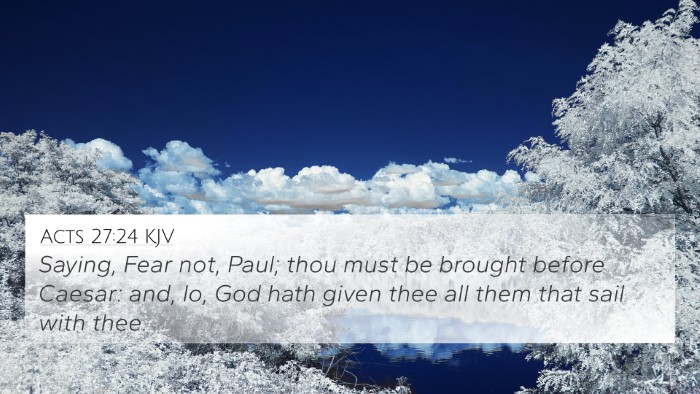Psalms 64:1 - Analysis and Meaning
Psalms 64:1 states: "Hear my voice, O God, in my prayer: preserve my life from fear of the enemy." This verse captures the essence of a believer's plea for divine intervention and protection against adversaries. Below we explore deeper insights drawn from public domain commentaries.
Summary of Key Themes
- Prayerful Appeal: The psalmist opens with a direct appeal to God, showing dependence on divine grace.
- Preservation of Life: There is a strong emphasis on the preservation of life amidst fear, highlighting the fragility of human existence.
- Fear of the Enemy: The mention of the "enemy" symbolizes not only physical adversaries but spiritual battles, which resonate throughout scripture.
Commentary Insights
Utilizing insights from leading public domain commentaries:
Matthew Henry
Henry emphasizes the earnestness of the psalmist's prayer. He notes that this verse represents a heartfelt cry for help amidst distress and fear. The term "hear my voice" reflects a personal relationship with God, illustrating how believers ought to approach God with sincerity.
Albert Barnes
Barnes points out that the fear mentioned is a significant theme in the life of believers. He argues that fear can lead to despair and highlights the importance of seeking God's protection. He draws parallels between this verse and others that emphasize prayer and reliance on God during trials.
Adam Clarke
Clarke adds depth by interpreting "fear of the enemy" as a literal and metaphorical term. He aligns this fear with the struggles believers face, suggesting that it is not uncommon for righteous individuals to wrestle with anxiety and trepidation. He encourages finding strength in prayer as a conduit for divine support.
Bible Cross-References
This verse connects with several other scriptures that reinforce its themes:
- Psalms 3:4: "I cried unto the Lord with my voice, and he heard me out of his holy hill." - Emphasizes God's responsiveness to prayer.
- Psalms 34:4: "I sought the Lord, and he heard me, and delivered me from all my fears." - A direct connection on fear and divine deliverance.
- Psalms 56:3: "What time I am afraid, I will trust in thee." - The theme of trusting God in fear is reiterated here.
- Psalms 91:15: "He shall call upon me, and I will answer him: I will be with him in trouble; I will deliver him, and honour him." - Assurance of God's presence in trials.
- Isaiah 41:10: "Fear thou not; for I am with thee: be not dismayed; for I am thy God." - A promise of God's companionship in fear.
- Matthew 6:34: "Take therefore no thought for the morrow: for the morrow shall take thought for the things of itself." - Encouragement against worry and fear.
- Philippians 4:6-7: "Be careful for nothing; but in every thing by prayer and supplication... the peace of God... shall keep your hearts and minds." - Connection to prayerful reliance leading to peace.
Connections to Broader Themes
The connections between Psalms 64:1 and other Bible verses form a cohesive understanding of spiritual warfare, divine protection, and the transformative power of prayer:
- Thematic Bible Connections: The repeated call to prayer reveals a theme of seeking God amidst adversities.
- Inter-Biblical Dialogue: The relationship between Old Testament laments and New Testament promises illustrates a continuity in God’s character and faithfulness.
Conclusion
Psalms 64:1 encapsulates the essence of human vulnerability and the assurance of divine help. Through prayer, believers can draw strength against fears and challenges. This verse and its surrounding context affirm the vital practice of prayer in a believer's life.
Utilizing Cross-References: Understanding how to find cross-references in the Bible enriches one's spiritual journey and enhances comprehension of scripture. Tools for Bible cross-referencing, such as a bible concordance and bible cross-reference guides, are invaluable for deeper study.
For those looking to delve into cross-reference Bible study, exploring connections between Psalms and New Testament teachings can yield profound insights into the nature of faith and divine assistance, as illustrated in this reflective verse.















